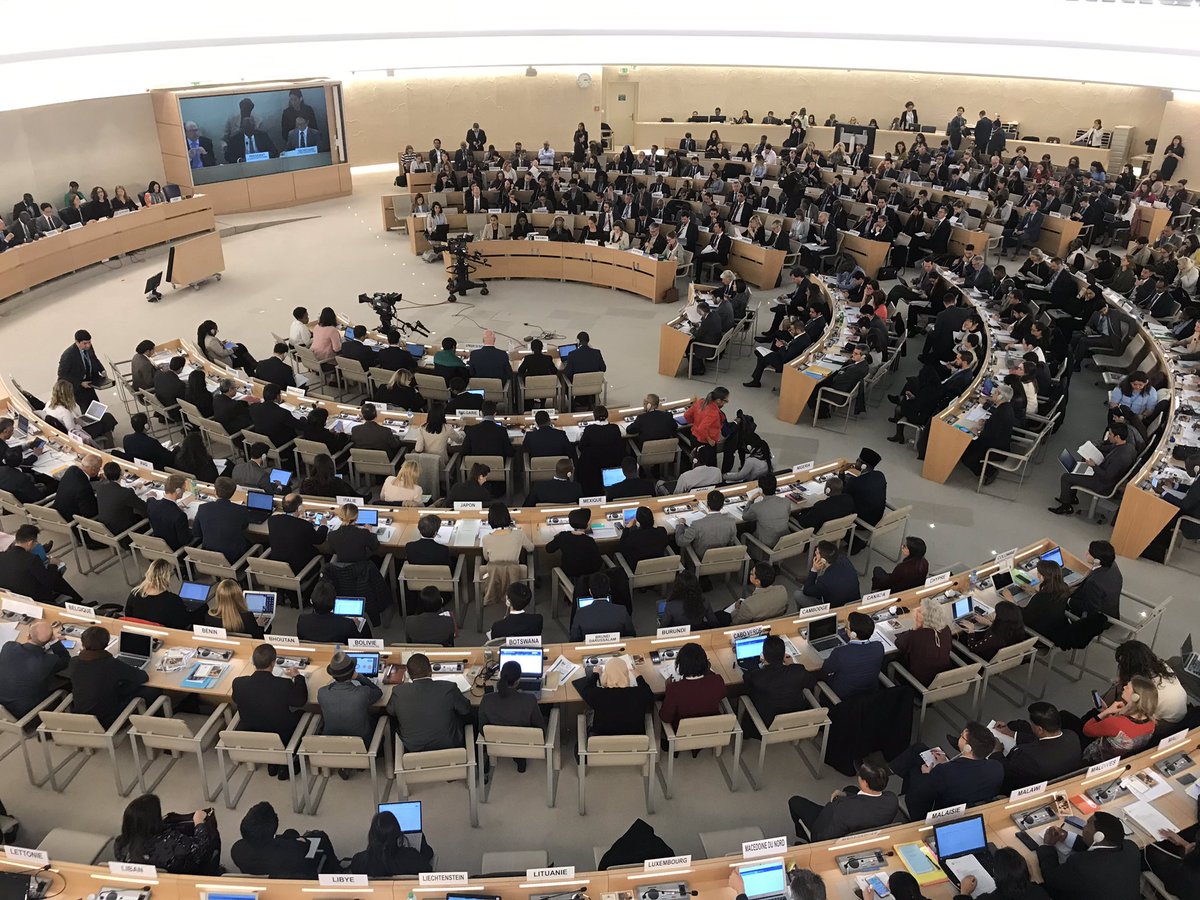
The Office of the UN High Commissioner for Human Rights (OHCHR) has called on the Sri Lankan government to take action against the ongoing intimidation of Tamil civil society actors, journalists, and activists in the North-East, as well as deliver justice for rights violations and holding perpetrators accountable.
Speaking at the 58th session of the UN Human Rights Council (UNHRC), Maarit Kohonen Sheriff, Director of OHCHR’s Global Operations Division, presented an oral update on reconciliation and accountability in Sri Lanka. While acknowledging the election of Anura Kumara Dissanayake’s government, which secured a large parliamentary majority under the National People's Power (NPP) coalition, she underscored that progress on human rights and accountability remains critical.
Despite the political transition, the OHCHR confirmed that reports of surveillance and intimidation by Sri Lankan security forces in the Tamil homeland continue to emerge.
“Our Office continues to receive reports of surveillance and intimidation by security agencies in the North and East, highlighting the need for more fundamental security sector reforms,” Sheriff stated.
These revelations reaffirm longstanding concerns from Tamil civil society and human rights organisations, which have repeatedly condemned the militarisation of the North-East and the continued operation of Sri Lankan intelligence networks in suppressing freedom of expression, activism, and accountability efforts.
Successive Sri Lankan governments have maintained an iron grip over Tamil areas, employing the military, police, and intelligence agencies to monitor and harass families of the disappeared, journalists, and activists. Under previous regimes, Tamil human rights defenders and protestors have faced arrests, torture, and even enforced disappearances.
Sheriff said that addressing these abuses requires fundamental security sector reforms, not merely superficial policy changes.
“The new Government must lift unnecessary regulation and restriction on civil society and independent media to revive the civic space,” she urged.
The NPP government has pledged to address corruption and accountability for the 2019 Easter Sunday attacks. However, these commitments must also extend to “the large-scale violations that occurred during the civil war and prior insurgencies,” the OHCHR stated. “These crimes must be thoroughly investigated, justice served to victims, and perpetrators held accountable.”
In her address, Sheriff also urged the government to “reform” the Office of Missing Persons (OMP), which has failed to provide any meaningful answers to Tamil families of the disappeared.
“We also urge the new Government to reform and strengthen the Office of Missing Persons, including by appointing independent and credible members, to achieve meaningful progress in the thousands of cases of enforced disappearances,” she stated.
Since its establishment, the OMP has been widely criticised by Tamil families and international human rights organisations for its lack of independence and effectiveness. Over 15 years since the Mullivaikkal genocide, it has failed to prosecute those responsible for enforced disappearances. Instead, survivors say it has been used to whitewash the Sri Lankan state’s role in abductions and disappearances.
Sheriff also called on the government to repeal or amend oppressive legislation, including the “oppressive Prevention of Terrorism Act (PTA) and the Online Safety Act,” and ensure that any new laws comply with Sri Lanka’s international human rights obligations.
The OHCHR described the current moment as “an important opportunity in Sri Lanka’s history”, but warned that without meaningful action on accountability and justice, the island would continue the “cycle of impunity that has for so long wracked Sri Lanka’s past”.
“Our Office is ready to support Sri Lanka and hopes it can report tangible results to this Council in September,” the statement ended.
